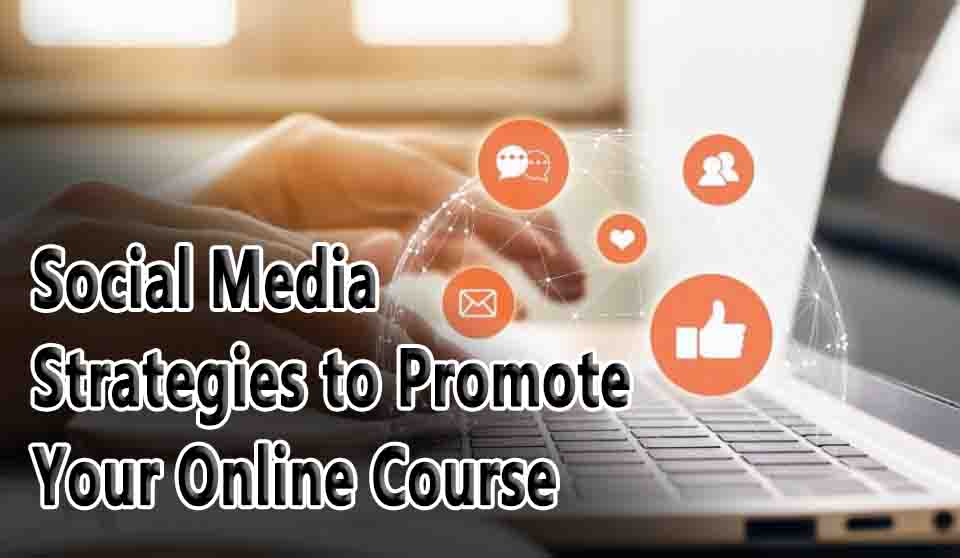In today’s world, making a great online course is only the beginning. To succeed, you need to have a strong plan for promoting your course and making sure the right people know about it.
One of the best ways to do this is by using social media platforms like Facebook, Instagram, Twitter, and LinkedIn, with billions of users worldwide. These platforms give you unparalleled opportunities to connect with potential students.
In this blog post, we will talk about seven top strategies to use social media to market your online course to the right audience! Without any further wait, let’s dive right in!
1. Design engaging content
Think of social media as a big online gathering where people share interesting stuff. To grab attention in this digital space, you need to share exciting content about your online course. Use catchy headlines and high-quality images to make your content stand out in the crowded online space.
An ideal way to plan content on social media is by developing a content calendar. It’s a schedule that includes a mix of educational posts, testimonials, behind-the-scenes glimpses, and visually appealing graphics related to your course.
PosterMyWall can help make marketing for your online classes easy. They offer a wide array of flyers, social media posts, and email templates to edit and use effortlessly.
2. Create video content
Video is a great tool for capturing the attention of your target audience and effectively promoting your online course. You can create short teaser videos that offer a glimpse into the content of your online course. These videos should be designed to spark interest and curiosity among potential students.
Hosting live Q&A sessions is also a powerful way to directly engage with your audience in real time. Platforms like Instagram Live or Facebook Live allow you to interact with potential students, address their queries, and provide immediate insights into your course.
Another effective video strategy is to create short tutorial videos that showcase specific aspects of your course content. These tutorials can highlight key concepts, demonstrate practical skills, or share valuable insights related to your course.
3. Utilize paid advertising
Investing in paid advertising on social media involves allocating a budget to create and promote advertisements for your online course. Social media platforms, such as Facebook and Instagram, offer advertising services that allow you to tailor your promotional content to specific groups of people based on their demographics, interests, and online behavior.
Choose the social media platforms that align with your target audience. For example, if your course is visually oriented, platforms like Instagram, which focus on images and videos, might be particularly effective.
Moreover, consider using carousel ads, a format that allows you to showcase multiple images or videos in a single ad. This is useful for highlighting different aspects of your course, providing a more comprehensive view to potential students.
4. Engage with your audience
Building a community around your course is crucial for its success. Respond promptly to comments, messages, and mentions on social media. Encourage discussions, ask questions, and create polls to boost engagement. The more active and involved you are, the more likely your audience is to share your content and recommend your course to others.
Social media algorithms also often prioritize content that receives high engagement. A vibrant community that actively engages with your posts increases the visibility of your course-related content, reaching a broader audience.
5. Promote User-Generated Content
Encourage your current students to share their experiences with your course. User-generated content, such as testimonials, reviews, and success stories, can be a potent marketing tool.
To facilitate this process, create branded hashtags that uniquely represent your course. Encourage your students to use these hashtags when posting about their achievements or experiences related to your course online. You can then feature this content on your social media channels to showcase the real impact of your course.
6. Run promotional offers
Creating a sense of urgency and excitement is a powerful marketing strategy that encourages people to take immediate action. Running promotional offers can entice potential students and boost enrollment in your online course.
You can offer discounted rates for individuals who register for your course early or you can provide a limited-time offer where students get access to exclusive content, resources, or features.
Another great strategy is to introduce flash sales or short-term discounts to create a buzz around your course. This involves offering a significant price reduction for a brief period, typically 24 to 48 hours. The idea is to prompt students to take immediate action and drive more sales.
7. Collaborate with influencers
Connecting with influencers in your niche can significantly enhance the visibility and credibility of your online course. Influencers are individuals who have established a loyal and engaged following on social media, often within a specific industry or topic.
Once an influencer agrees to collaborate, they can create content that promotes your course. This might include reviews, testimonials, or even a demonstration of the course content. By collaborating with them, you tap into their existing audience, gaining access to potential students who are already interested in your course’s subject matter.
Key Takeaway
We hope these social media promotional tips were helpful. By using these tips, your course won’t just be seen; it’ll be a super important part of someone’s learning journey.
So, make your course awesome, inspire lots of people, and see it grow online! Good luck!

